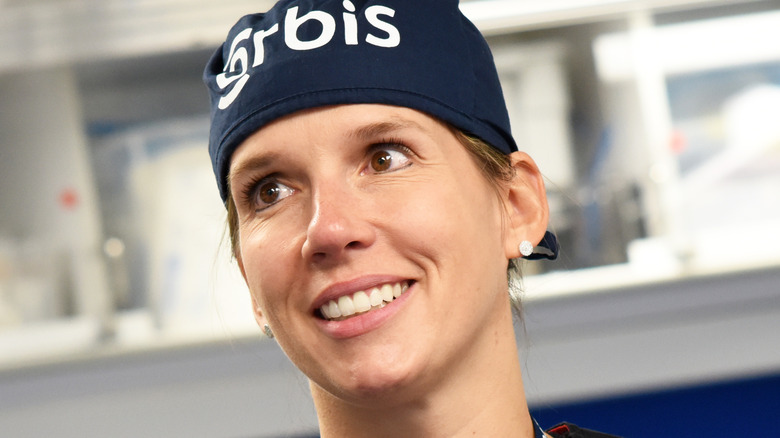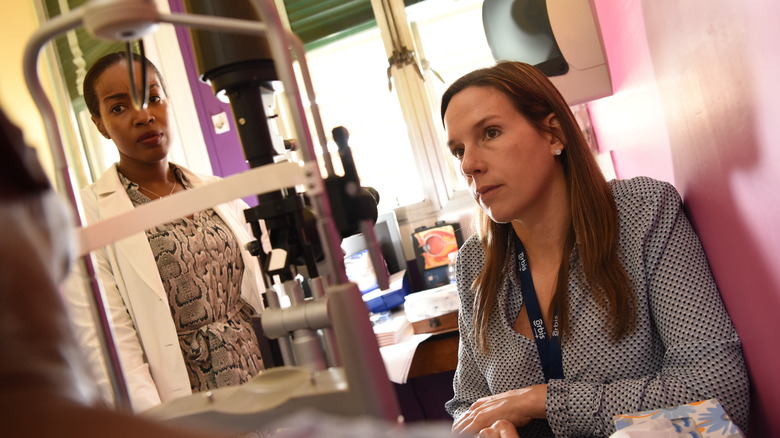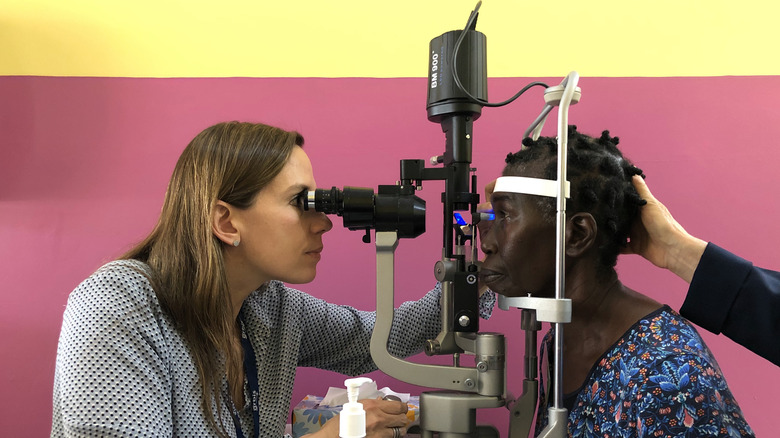Ophthalmologist Dr. Annette Giangiacomo Discusses Daily Habits That Keep Your Eyes Healthy - Exclusive
Eye health is one aspect of health that many of us overlook. Unless you need glasses or contacts, you probably don't think about taking care of your eyes until there's a problem. Unfortunately, by the time you notice symptoms of a problem, it may be too late. For example, glaucoma can develop slowly and often doesn't even cause pain or blurry vision until the disease has progressed. If it's not diagnosed and treated early, it can cause blindness.
Prioritizing eye health every day is just as important for overall health as taking care of any other part of the body. Luckily, there are some simple things you can do to make sure your peepers stay as healthy as they are beautiful. Dr. Anne Giangiacomo, an ophthalmologist and glaucoma expert, took some time to chat with Health Digest about the things you should do on the regular to help your eyes thrive and preserve your eyesight long term.
Diet and exercise for eye health
Diet and exercise impact the health of nearly every body system, and the eyes are no exception. Dr. Annette Giangiacomo said that a sedentary lifestyle and a diet lacking in the proper vitamins, minerals, and nutrients can lead to eye diseases like "glaucoma, cataracts, or age-related macular degeneration."
"Foods rich in Vitamin C and E are good for overall eye health, and you can find these in leafy greens, sweet potatoes, meats, nuts, and beans," she explained. "On the other hand, foods with saturated fats and high sugar can be detrimental to eye health." She added that malnutrition is linked to poor eye health, so it's also important to make sure you're getting enough food to nourish your body.
Dr. Giangiacomo went on to say that exercise is also linked to better eye health because it helps prevent other diseases, like diabetes, that can cause eye diseases. She recommended maintaining a regular exercise routine to improve overall eye health.
Reducing screen time for eye health
Most of us know that too much time spent staring at screens can have a negative impact on our eyes and our overall health. Dr. Annette Giangiacomo revealed that the problems have gotten worse since the beginning of the pandemic because many people, including children, are spending so much more time in front of screens.
"Computer vision syndrome is becoming more common as people spend more time at home teleworking," she said. "Extra screen time has led to headaches, blurred vision, dry eyes, sleep interruption, and eye strain." She added that many pediatric ophthalmologists are worried about how extra screen time will impact the vision development of young children.
So what can we do to mitigate the impacts of all that extra screen time? Dr. Giangiacomo recommended taking breaks from screens (yes, including your phone!) throughout the day. She also recommends "implementing the 20-20-20 rule to rest your eyes. This means that for every 20 minutes spent using a screen, you should try to look away at something that is 20 feet away from you for a total of 20 seconds."
Visit the Orbis website to make a sight-saving donation to support the children and adult patients that Orbis volunteers, including Dr. Annette, provide care to across the globe.



